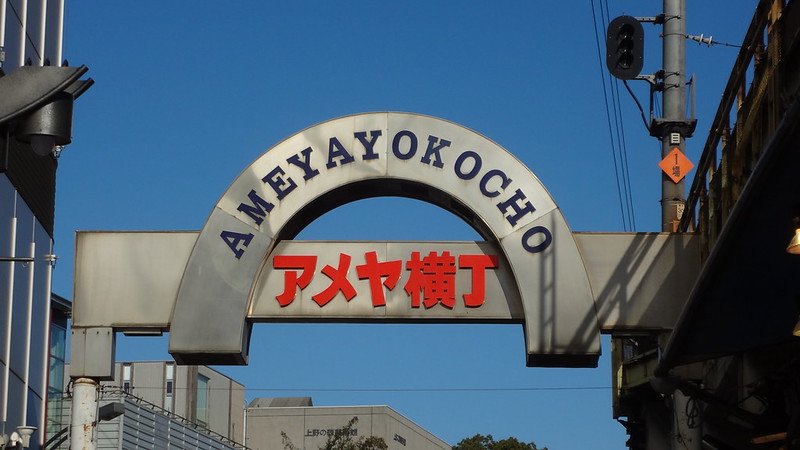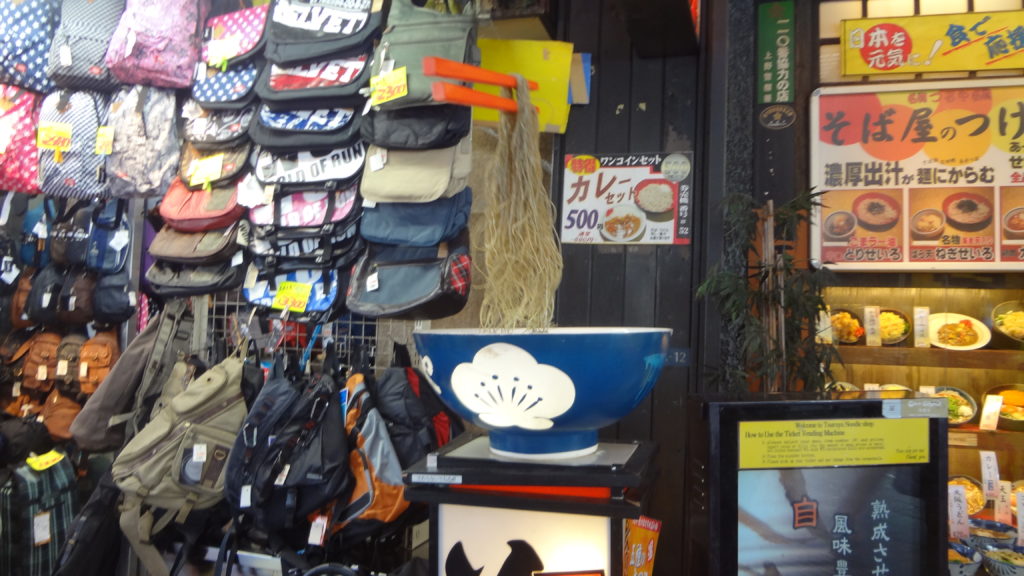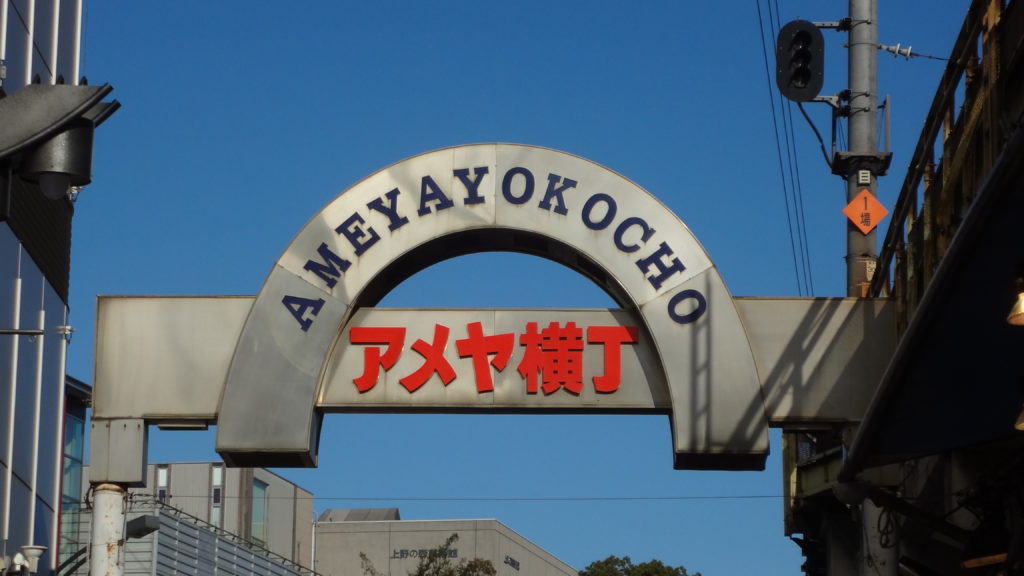
Japan Survival Guide 1: Stretching your Yen, by Hector Santiago
In this 4-part series, KCP Fall 2012 student Hector Santiago shares budget tips learned during his time at KCP. In this first installment, Hector offers tips on how to save on food expenses and ways to explore the country.
I’ve received countless requests from people asking me to write a blog on my experience with making a very small amount of money go a very long way. It is possible, even in an expensive country like Japan. It’s not always easy, but if you follow this guide, it will enhance your experience *and* keep more money in your pocket for things you REALLY want to do.
Tip 1—Brown Bag It!
I love Japanese food. When I first came to Japan, I wanted to eat at every restaurant I saw. This is obviously not a good idea. The average food-stand lunch meal in Japan is anywhere from about 500 to 900 Yen.
Advertisement outside a food establishment. | KCP Flickr
“Well, what does that mean to me?” you might ask. Well, do the math. I’ll even be nice and stay on the cheap end of this one for you. Let’s say 500 Yen for lunch per day, and we’ll assume just weekdays. That’s 5 x 500 = 2,500 Yen per week. A term at KCP is roughly 12 weeks. 2,500 x 12 = 30,000 Yen. “English please?” That’s about $360 over 12 weeks just for lunch. Once again, I was nice in assuming you would go for the 500 Yen lunch every day. But life doesn’t work like that. Sometimes, you’re going to want the 900 Yen lunch just because it looks, tastes, and or smells better, which quickly depletes your funds. Trust me, I know. I did this for the first 3 weeks. That is, until I learned the tricks.
Living with a Japanese family, I learned a lot that most students don’t, because they live in dorms. So, here’s the secret. Japanese people are very conservative of resources. One phrase that you will learn and appreciate when you come to Japan is “Mottainai”—wasteful. It implies a sense of regret for wasting food. Because of this outlook on conserving resources like food, every night about 30 minutes before any local grocery store or convenience store closes, all of the prepared food goes half-price. It’s called “Han-gaku.” These terms will come in handy when you get here.
Portions are also usually very generous if you get to an eating place early enough. On average, I spend about 150–200 Yen a day on lunch. This is a considerable savings. Invest in a bento (lunch) box from the Hyaku-Yen (pronounced En) store, basically a dollar store, and you’ve just cut your food expense in half over the course of your term. Congratulations!
Tip 2—Become an Explorer
Who said you need money to have fun? If you have an adventurous spirit, take a hike, literally. Japan is huge if you’re traveling on foot. It may take some motivation, but pick a direction and just walk for a few hours. You will see places and things in Japan most foreigners will never see. To be frank, most students stay within the city and don’t care to venture into the unknown, unless it’s accessible by train. If they get lost, it’s easy to get back. The train–subway system is the most efficient in the world.
Ameya yokocho. | KCP Flickr
Getting lost in mainstream areas of the country is really tough. But take a trip to a city only locals have heard of; not only will you impress them by having gone to such an unusual (for tourists) place, but you will find things that may interest you more than the city’s tourist attractions—public bath houses, car and motorcycle showrooms, really great food, and so on. I usually saved these trips for the weekends when I had lots of free time.
Becoming one with your surroundings is the name of the game. In Japan, it doesn’t matter if you speak great Japanese. If you try hard to blend in and act as the Japanese act, you will be much more accepted by the Japanese.
Stay tuned for more invaluable tips from Hector!
You can also visit his online travel journal to read about his other study abroad experiences. If you have a question for Hector about his saving suggestions, please ask him.


